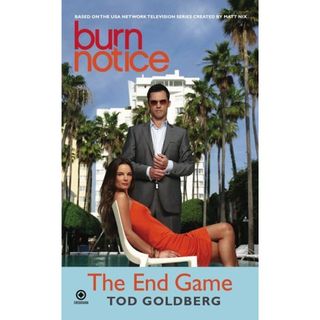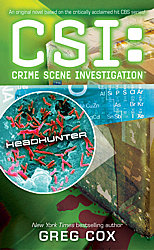Today at the California Crime Writer’s Conference several writers sheepishly asked me “so, how do you get into this tie-in business?” as if they were asking me how to get into writing porn movies. Now that the book biz is tightening up, and mid-list writers are being dropped all over the place, tie-ins are beginning to look good to some authors who never would have considered them before.
The same thing happened to me during the WGA writer’s strike…writer who once gave me a hard time about doing the MONK & DIAGNOSIS MURDER books while I was also writing & producing TV shows would say to me that they were “interested maybe trying that tie-in thing, you know, just for fun.” Not because they needed a job, of course, but “just for fun.” Uh-huh.
For some reason, when times are hard for writers, tie-ins get a lot more respect. I don’t know why…for that matter, I don’t understand why writers regard them with disdain when times are good. But that’s one of the reasons Max Allan Collins and I formed the International Association of Media Tie-in Writers a few years ago…to educated people about tie-ins and to gain more respect for the genre. Slowly but surely, the organization is making a difference.
Speaking of which, there’s an Q&A interview with me over at Talking With Tim about the International Association of Media Tie-in Writers and tie-in writing. Here’s a taste:
the reason more creators don’t try to keep their TV series alive in print after cancellation is because publishers simply aren’t interested, which is no surprise if you think about it. The incentive for publishers to do tie-ins is to capitalize on the huge audience that a hit show draws and the enormous publicity that surrounds it. It also offers a level of confidence in what ordinarily would be a gamble. The book is, in essence, a pre-sold concept with a built-in audience and supported by millions of dollars worth of FREE promotion. The TV show itself, as well as the advertising and promotion that the network does, becomes free publicity for the books. Success, wide recognition, a strong concept and major promotion are what makes a publisher interested in tie-ins.
But once a show is cancelled, the incentive to do tie-in books instantly evaporates





